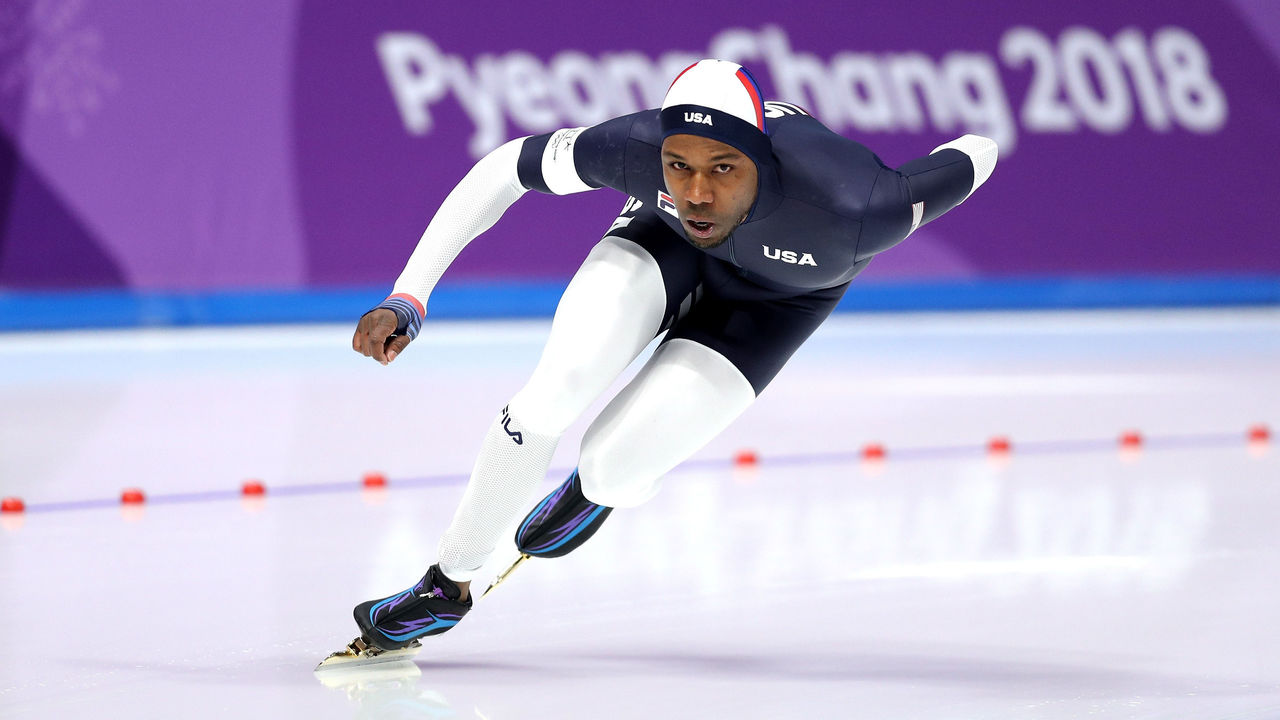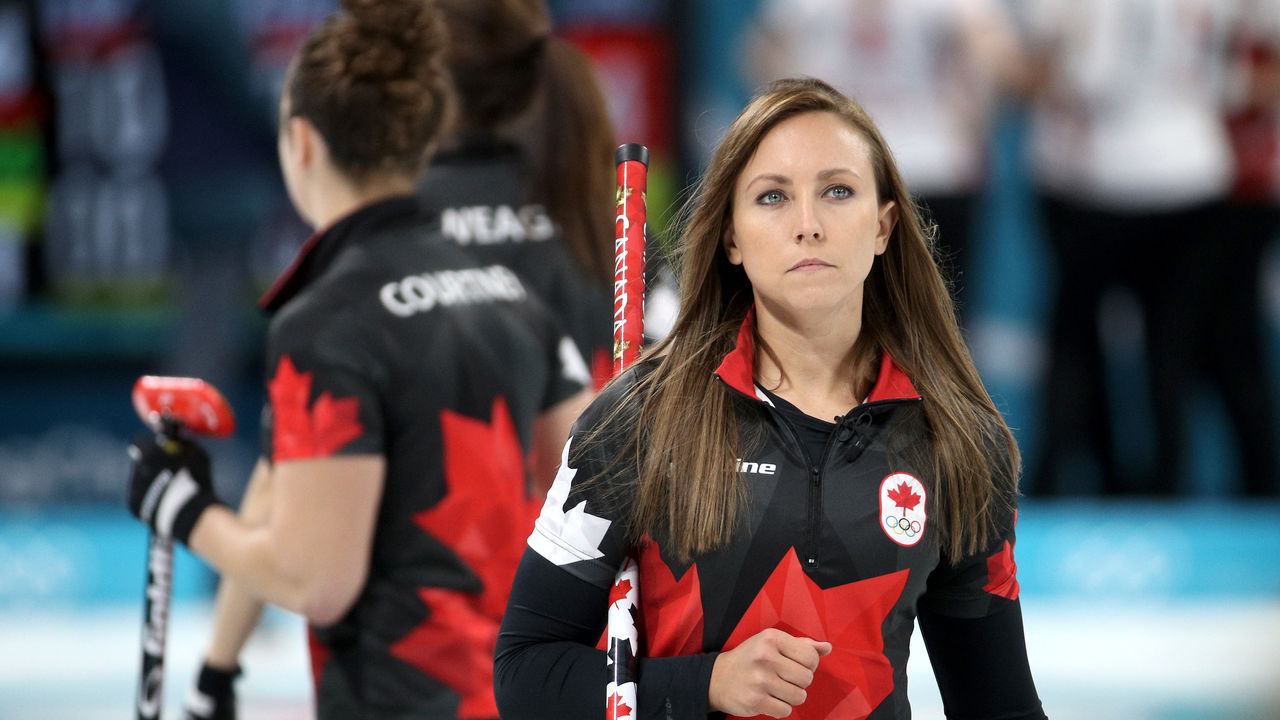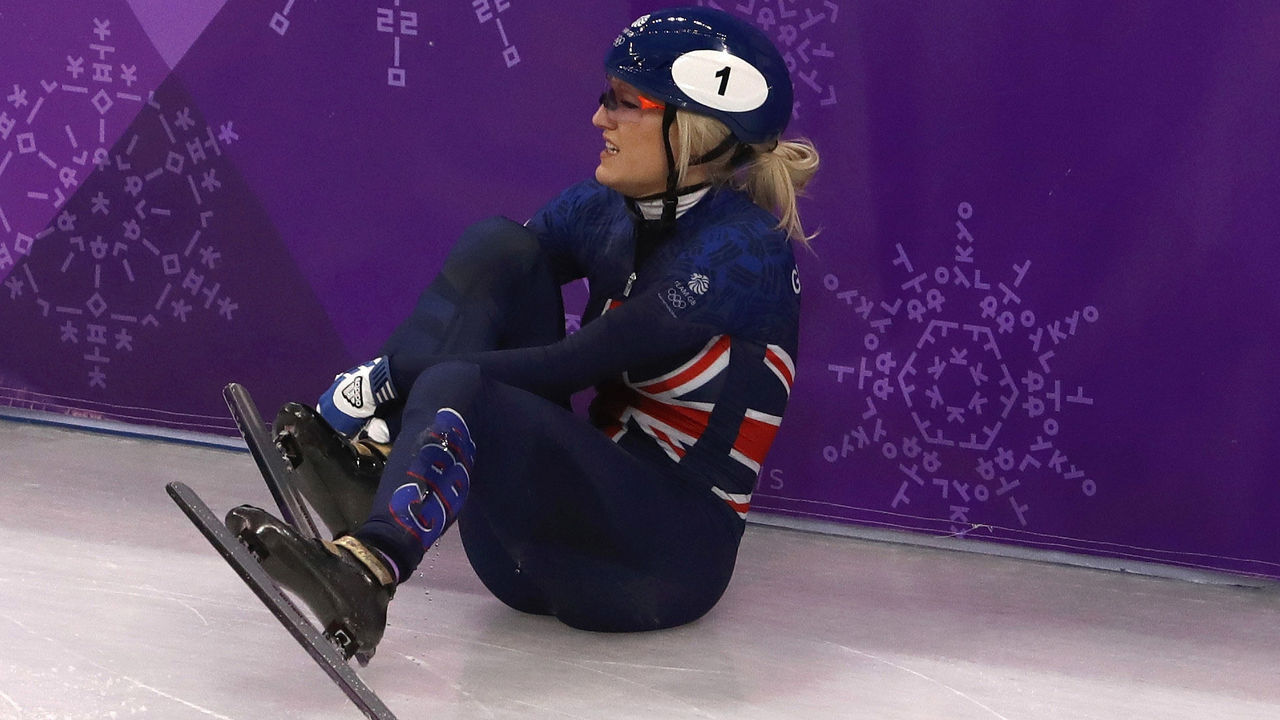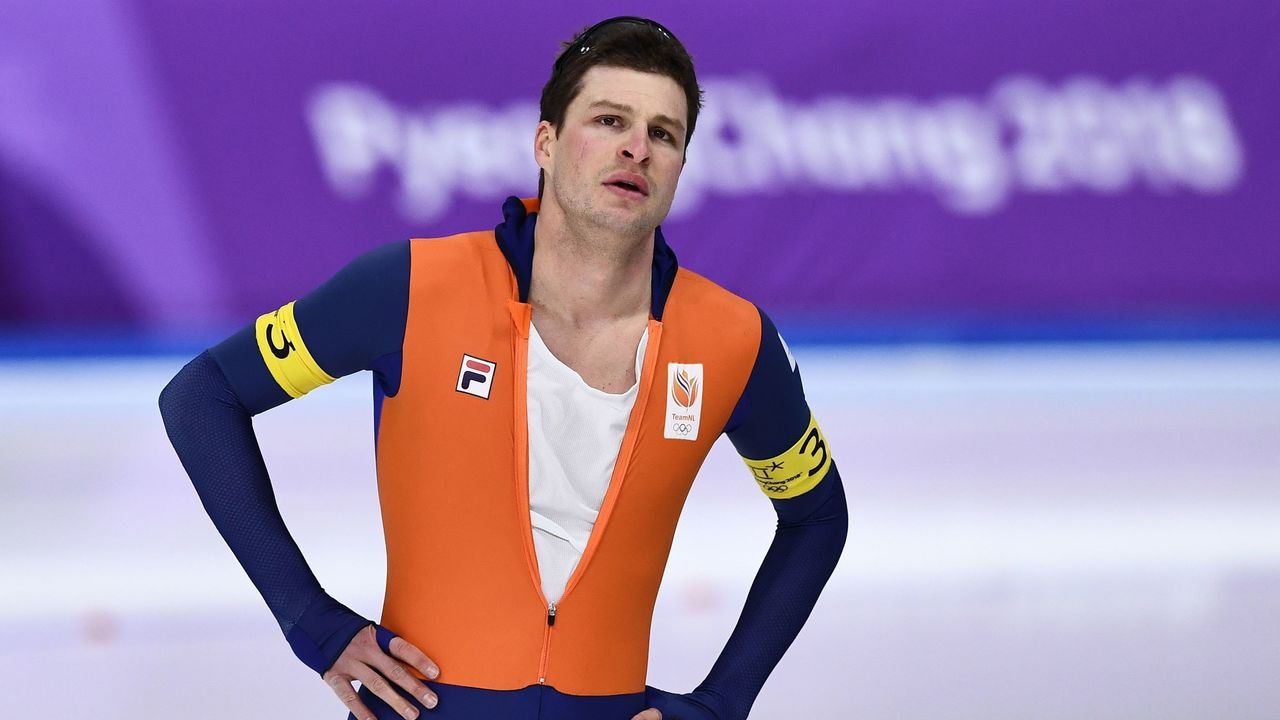LEAGUES News
4 surprising disappointments at PyeongChang 2018
With PyeongChang 2018 all but closed, we look back at some of the lackluster performances that left us in shock over the past two weeks.
Team USA's medal haul

There have been some historic medal triumphs for the United States in PyeongChang that will live long in the memory: luger Chris Mazdzer; cross-country skiers Jessie Diggins and Kikkan Randall; the women's hockey team's epic shootout win over Canada for gold; John Shuster's curling rink.
Those accomplishments deserve to be recognized.
So too, though, does the widespread struggle of the U.S. contingent, which has fallen well short of medal expectations after sending a Winter Olympic-record 242 athletes to the two-week spectacle.
Heading into the final day of competition, the Americans have grabbed 23 total medals (nine gold, eight silver, six bronze), way off the reported 37 the U.S. Olympic Committee targeted coming into the 2018 Games.
Much of the optimism stemmed from one of the nation's marquee competitors, Russia, being decimated by the infamous doping scandal - Russia gobbled up 29 medals in Sochi, and the U.S. was expected to be the main benefactor of their weakened team in South Korea.
But struggles in a handful of events, including long track speedskating and individual figure skating, along with a bevy of near-podium misses combined to put a damper on things for many Americans who expected to see their powerhouse Olympic nation dominate the field. Even double medalist Mikaela Shiffrin, who some thought could win five golds, saw her chances of a historic games dashed by unfavorable weather conditions and a shifting alpine schedule that didn't allow her to compete in all the events she had hoped.
"The expectation of winning gold medals is pretty out of whack and I think we need to be proud of all of our athletes for how much they've sacrificed and put in to be here," Shiffrin's teammate, Lindsey Vonn, who won a bronze in the downhill, said. "Medals - they're not necessarily what the Olympics are all about. ... To quantify it in how many medals you have is not appropriate and doesn't respect the athletes and what they've put in to be in these games."
She's right, but that won't stop the handwringing.
Canadian curling teams off the podium

It all started so well.
When Kaitlyn Lawes and John Morris blitzed the field en route to winning gold in the inaugural edition of the mixed doubles event, it looked as though Canada's longstanding domination of Olympic curling was set to continue unabated.
And then the wheels fell off.
Both Rachel Homan and Kevin Koe's rinks arrived in PyeongChang with stacked resumes that include, among many other accolades, recent world championship titles - Homan routed the competition last year, going undefeated, while Koe dropped just one game in the 2016 men's tournament.
For a country that had won three consecutive gold medals on the men's side, and had captured hardware of some color in the women's tournament at every single Winter Olympics, suggesting beforehand that either could come up empty-handed in South Korea would have bordered on blasphemy.
Yet here we are.
Homan and Co., plagued by error-strewn play, got off to an unthinkable 0-3 start and simply couldn't recover, ultimately missing the playoffs. Koe and third Marc Kennedy, meanwhile, missed big shots in key moments - highlighted by the skip's miscue with his final stone in the eighth end of the semifinal against the U.S. which ultimately proved the difference between playing in the gold-medal game and going for bronze. They would go on to drop that third-place contest to Switzerland.
No medals. The calls for a national curling summit were immediate.
"We come from a rich history of curling, where we won everything, and that’s not the way it is anymore," Kennedy said after the aforementioned loss to the Swiss. "Anyone that’s been watching the grand slams of curling, we've got European teams winning all the time ... So this is the new normal. People need to get used to it."
The rest of the world continues to improve, while Homan and Koe, who remain among the best curlers on the planet, simply picked an inopportune time to play poorly.
Elise Christie's trio of mishaps ... again

Elise Christie was expected to put the misery of Sochi behind her in PyeongChang; one of Great Britain's most talented, marketable Winter Olympians was disqualified in all three of her individual events four years ago, and vowed to redeem herself this time around.
Instead, things - somehow - got worse.
The 27-year-old Scot, a world record holder in the 500-meter and the 2017 world champion, endured a miserable two weeks in South Korea, crashing out of the 500m and 1,500m before being disqualified in the 1,000m.
She competed in the latter race on a badly injured, heavily swollen right ankle after her crash in the 1,500m left her battered on the ice; there were doubts she would even recover for the final event, and while she ultimately did, she was clearly hobbling before being DQ'd.
The British media dubbed it an Olympic curse. So successful on the international circuit, Christie once again faltered on the grandest stage.
"I don't know how many gold medals I've picked up since Sochi. This doesn't define me just because it's the thing that's broadcast everywhere," she said of her latest Olympic disappointment.
She has suggested she'll return for Beijing in 2022 in a final bid to claim at least one piece of Olympic hardware.
Sven Kramer's 10,000-meter performance

Sven Kramer made no secret of his desire to complete his medal cabinet with gold in the 10,000mer race - the only Olympic victory to have eluded him, sometimes painfully, in his vaunted career.
The Dutch speedskating icon crossed the line quickest in the event at Vancouver 2010 before being disqualified, incredibly, for using the wrong lane after the incorrect instruction of his coach. He then had to settle for silver in Sochi.
PyeongChang was likely the final chance for the 31-year-old to collect the lone jewel missing from his crown.
Instead, he wilted. A quick start had the decorated Dutchman, skating in the final pair of the event, in striking distance of the fastest time, but his legs began to fade badly, and a dejected Kramer, knowing he was well beaten, simply strolled across the finish line after running out of gas.
He ultimately finished sixth, 21.25 seconds behind gold medalist Ted-Jan Bloemen of Canada.
"It has affected me to my core and I am struggling to deal with it and, of course, it is keeping me up at nights," Kramer told Dutch television afterwards, per Reuters.
Kramer added two medals - one gold, one bronze - to his bloated collection in PyeongChang, bringing his incredible Olympic tally to nine overall. But amid that collection, there remains one glaring hole that will likely never be filled.
(Photos courtesy: Getty Images)
HEADLINES
- Knicks celebrate NBA Cup title, even though they won't raise banner
- Sabonis to miss at least 4-5 more weeks with knee injury
- Angels settle lawsuit with Skaggs' family over fatal overdose
- NBA tweaks injury reporting rules, still wants changes to prop betting
- Kelce ready to give 'everything I got' in potentially final 3 games of career
